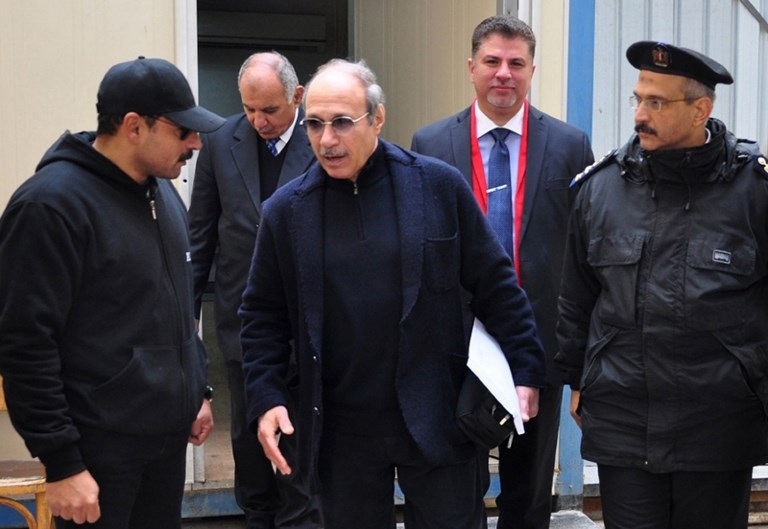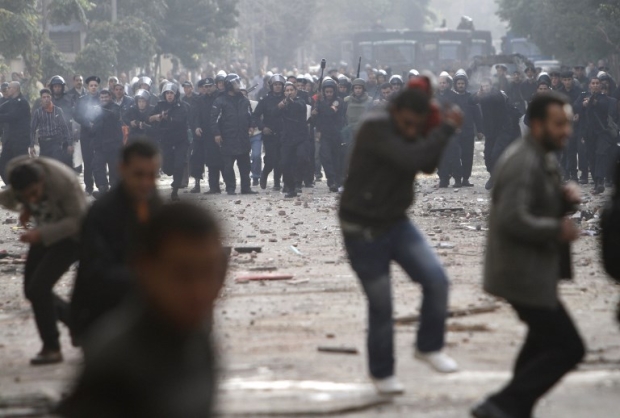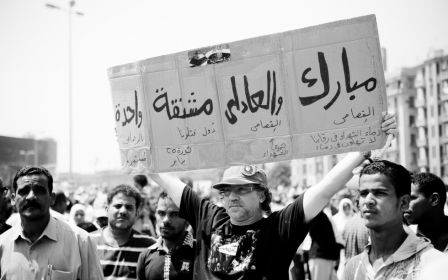Is Egypt's fugitive security chief advising bin Salman on the Saudi purge?

As Crown Prince Mohammed Bin Salman continues his purge of the Saudi elite with the detention of 11 princes and hundreds of businessmen, the name of former Egyptian security chief Habib al-Adly is being reported as the hard man advising on the crackdown.
Mohammed bin Salman (MbS) has presented the arrests as a campaign against corruption, with drastic measures needed to turn around the kingdom’s graft-ridden and oil-dependent economy, but his critics call it a crackdown to consolidate his power.
Adly had been rumoured to be in Saudi Arabia for months and to have joined the security apparatus after fleeing Egypt earlier this year where he faced jail for corruption.
According to one of Adly’s advisors and a former Egyptian interior minister, MbS turned to Adly - a man who earned a reputation in Egypt under President Hosni Mubarak for brutality, torture and corruption - for advice in his campaign, reported the New York Times on Wednesday.
Corroborating earlier reports by MEE of alleged torture at the Ritz Carlton in Riyadh, where members of the Saudi elite have been held, the paper reported that a Saudi doctor and US officials said at least 17 people needed hospital treatment afer severe beatings following their arrest.
Human rights abuses
Reports about Adly being involved in the campaign may come as no surprise to many Egyptians who suffered under his more than decade-long tenure as Egypt's security chief.
Mubarak appointed Adly as minister of interior in 1997 following the Deir al-Bahari massacre in Luxor, which resulted in the deaths of 62 people that had been claimed by the militant Jama’a al-Islamiya group.
During his 14 years as Mubarak’s interior minister, human rights groups accused Adly and his police apparatus of the systematic use of torture, forced disappearances, involvement in extraordinary renditions, physical and psychological abuse of detainees in places of detention, espionage against opposition figures, among other violations, although neither Adly nor his deputies stood trial on these charges.
In November 2014, the Cairo Criminal Court dismissed charges brought against Mubarak and Adly, along with his six police deputies, pertaining to the deaths of hundreds of anti-regime protesters during Egypt’s January 2011 popular uprising.
Adly had reportedly issued a host of threats against protesters on state-owned media warning of a heavy-handed police response ahead of the 2011 mass protests. But in his court defence, he denied that his police forces had killed protesters, and instead pinned the blame on the Muslim Brotherhood and the Palestinian Islamic resistance group Hamas.
String of damming charges
A long-serving official at the top of Egypt's feared internal security apparatus, 79-year-old Adly has faced a string of criminal cases against him since the 2011 uprising that ousted both himself and Mubarak.
In 2012, he was sentenced to life in prison after being found guilty over the police killings in the uprising, along with charges of corruption, money laundering, illicit gains and misappropriation of public funds amounting to hundreds of thousands of pounds and the use of conscript labour on his private properties.
The charges were dropped two years later after an appeals court ordered a retrial and Adly was released in March 2015 after serving three years in prison.
At the time, he was the latest – and perhaps most controversial - figure among a number of Mubarak-era officials to have secured acquittals since the military overthrew president Mohamed Morsi in 2013 and its former commander-in-chief Abdel Fatah al-Sisi took power.
On his personal account on Twitter, human rights lawyer Gamal Eid commented at the time that Mubarak’s clique of officials who “sought to crush the January 25 revolution” have all been released, while many of the youth who struggled for the revolution are either buried or jailed.
A swift escape
In another round of court trials, Adly and two other ministry officials were sentenced to seven years in prison on 15 April this year over corruption charges and embezzling money from the Egyptian interior ministry.
But before police reached his 6 October City home, where he had been placed under house arrest after the prison sentence was issued, Adly escaped. Adly had filed an appeal which he lost due to his failure to appear at the Cairo Criminal Court.
Egypt declared Adly a fugitive after the public prosecutor began an investigation into his escape following official correspondence received by the Central Cairo Prosecution stating that Adly had fled his home.
According to Egyptian media, Adly’s family, private security guards and those responsible for placing him under house arrest, were questioned about his whereabouts at the time but Adly’s wife, Elham Sharshar, denied any knowledge of her husband’s whereabouts.
Egyptian journalist Mostafa Bakri told Alahram at the time that "the interior ministry's failure to arrest Adly leaves no doubt that someone has helped him to flee."
"It seems that Adly fled his house a long time ago and the fact that he did not show up in the Criminal Court today to discuss his appeal against the seven-year verdict leaves no doubt that someone had helped him flee his house," said Bakri on 16 May.
News reports suggesting that Adly had escape to Saudi Arabia appeared across Arabic media shortly afterwards, with some suggesting that he had in fact been offered an advisory position with the Saudi security apparatus.
Middle East Eye propose une couverture et une analyse indépendantes et incomparables du Moyen-Orient, de l’Afrique du Nord et d’autres régions du monde. Pour en savoir plus sur la reprise de ce contenu et les frais qui s’appliquent, veuillez remplir ce formulaire [en anglais]. Pour en savoir plus sur MEE, cliquez ici [en anglais].







